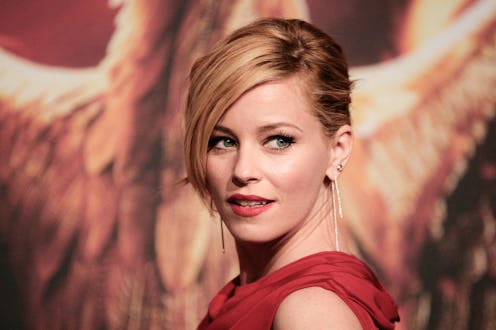Entertainment
Sexism Drove Elizabeth Banks To Directing
It's no secret that sexism in Hollywood is more pervasive as ever, and its conspicuousness makes it all the more embarrassing. In an interview with Deadline, Elizabeth Banks, multi-hyphen in Hollywood, talked motherhood, her guest spot on Modern Family that earned an Emmy nomination this year, and what got her into directing. According to the actress, Banks was motivated to direct because of sexism in Hollywood. "I definitely was feeling that I was unfulfilled and a bit bored by the things that were coming across my desk," Banks said, which led her to seek her own projects. The idealist in me wishes that all my favorite actresses would take the leap and make the switch from acting to directing to provided better spaces for women's storytelling, but it might be a while before that happens.
Deadline asked Banks about what they aptly called the "insidious sexism" in Hollywood, and how that "affected her choices going forward," if at all: "Oh, I think it drove me to direct for sure... I mean things like playing Effie (in The Hunger Games) really helped sustain me. She’s so iconic and I love her and people really get to see the movie but I think at a certain point, everything that’s coming across my desk, I’m like, ‘I’m vibrant and vital and interested. I still got my looks.'" Banks went on to throw a little bit of shade at the fact that "veterans in the industry" were still getting stale, one-dimensional roles: "I mean I look at Gwyneth Paltrow who has her Oscar and played fifth banana to Iron Man. That to me is a great example of the fate of women in Hollywood. Like what more can you do? I didn’t even date Brad Pitt so what more can I do?"
Luckily, Banks was proactive about her frustration and went behind the scenes to provide more roles and stories for women that were more interesting and diverse. Her directorial debut was this year with Pitch Perfect 2, which was a worldwide-sensation and smashed at the box office this summer; it was almost like her feminist message to Hollywood. She's a defiant, one-woman example of an actress in Hollywood breaking through to the other side because she's just fed up with it. And I wish there were more actresses in Hollywood taking that leap and crossing over.
But it's difficult. The problem has reached such heights that, earlier this year, the American Civil Liberties Union opened an investigation into the discriminatory hiring practices in Hollywood. Melissa Goodman from the ACLU said: "Women directors aren’t working on an even playing field and aren’t getting a fair opportunity to succeed. Gender discrimination is illegal. And really Hollywood doesn’t get this free pass when it comes to civil rights and gender discrimination." They went on to cite a study proving that less than 2 percent of the top 100 grossing films in the past two years were directed by women, among other depressing, dismal, but unsurprising stats about the gender disparity in Hollywood.
It's more crucial now than ever for Hollywood to hold a critical lens to such institutionalized misogyny and strive to do better. As we hurtle towards the Academy Awards, it's worth remembering that only four women have ever been nominated Best Director at the Oscars, and, had she not been snubbed, Ava Duvernay would have been the first African-American director to earn a nomination for Selma in 2014. More actresses should take the opportunity to direct, if they have it, but the responsibility is not entirely theirs, of course; and who can blame them for hesitating when female directors in Hollywood face so much resistance? At the end of the day, with such dismal numbers and percentages working against my favorite actresses, I'm asking the same question as Banks: "What can you do?"
